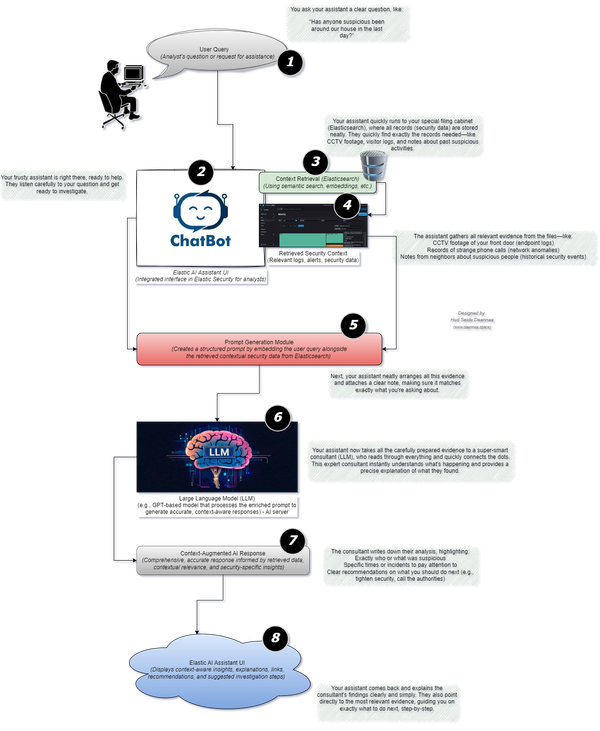The Hidden Costs of Convenience: Privacy and AI Concerns with Search Engines
This article aims to inform readers about the hidden privacy concerns with mainstream search engines and encourage them to consider using privacy-focused alternatives.

Our solution:

In today's digital age, search engines like Google have become indispensable tools for finding information, navigating the web, and connecting with content that matters. They offer unparalleled convenience, delivering answers to almost any query within seconds. However, this convenience comes at a significant cost—our privacy. While we benefit from tailored search results and personalized experiences, we often overlook the extensive data collection that fuels these features. This article delves into the privacy concerns surrounding popular search engines, the types of data they collect, how this data is used, and the dangers it poses. We also explore the importance of privacy-focused search engines as a safer alternative.
Data Collection by Search Engines
Search engines like Google collect an astonishing amount of data from their users. This data is not just limited to the search queries we enter, but extends far beyond into our personal and behavioral information. Here’s a breakdown of the types of data that are commonly collected:
-
Personal Information: When you create an account or use a service linked to your Google account, personal details such as your name, email address, and phone number are collected (CPO Magazine).
-
Search History: Every search query you make is logged, creating a detailed profile of your interests, needs, and activities (WGU).
-
Location Data: Search engines often track your physical location, whether you're searching from home, work, or on the go. This data is gathered through your IP address, GPS, Wi-Fi, and other methods.
-
Device Information: Details about the device you’re using, including the type of device, browser, and IP address, are recorded (CPO Magazine).
-
Behavioral Data: Search engines track which websites you visit, how much time you spend on them, your clicks, and interactions.
These data points are collected ostensibly to improve search results, enhance user experience, and personalize advertisements. However, this data collection is often more invasive than users realize, leading to significant privacy concerns (CPO Magazine).
How Data is Used
Once collected, this data can be used in several ways—some of which may not be immediately apparent to users.
-
Sale to AI Companies: One of the most concerning practices is the potential sale of user data to third-party companies, including those developing artificial intelligence (AI) technologies. This data can be extremely valuable, allowing these companies to refine their AI models and develop products that can predict and influence user behavior (WGU).
-
Training AI Models: Companies like Google use this vast amount of data to train AI models. These models power everything from targeted advertising algorithms to content recommendation engines. By analyzing your search history and behavior, AI can predict which ads you're more likely to click on, what content you're likely to engage with, and even how to manipulate your online activities.
The implications of using personal data to train AI models are profound. While these models become more effective, they do so by exploiting your personal information, often without your explicit consent or understanding (WGU).
The Dangers of Data Exploitation
The extensive data collection and usage practices of search engines pose several dangers:
-
Loss of Privacy: The more data that is collected about you, the less privacy you have. This data can reveal intimate details about your life, from your political views to your health concerns. Once this data is in the hands of search engines and potentially third-party companies, it can be challenging, if not impossible, to reclaim your privacy (CPO Magazine).
-
Manipulation and Control: AI models trained on your data can be used to subtly influence your behavior. For example, targeted ads can nudge you toward specific products, and recommendation engines can steer you toward particular content. This manipulation can be so seamless that you may not even realize it’s happening, raising ethical concerns about autonomy and consent.
-
Security Risks: The storage of vast amounts of personal data creates a significant security risk. Data breaches are becoming increasingly common, and when they occur, the personal information stored by search engines can be exposed to malicious actors. This information can be used for identity theft, fraud, or other harmful activities.
The Need for Privacy-Focused Search Engines
Given the privacy risks associated with traditional search engines, many users are turning to privacy-focused alternatives. These search engines, such as DuckDuckGo and Startpage, prioritize user privacy and offer a different approach to searching the web (CPO Magazine).
-
What Are Privacy Search Engines?: Privacy-focused search engines do not track your searches, store your personal data, or create profiles based on your behavior. They deliver search results without compromising your privacy, ensuring that your online activities remain confidential.
-
Benefits of Using Privacy Search Engines: By using a privacy-focused search engine, you can significantly reduce the amount of data collected about you. This not only enhances your privacy but also decreases the risk of being manipulated by targeted ads or having your data exposed in a breach. Additionally, these search engines do not participate in the sale of data to third parties, offering peace of mind for those concerned about their digital footprint (WGU).
Sogili Search
RabitaNoor search solves this issue (Try for free):

(https://go.rabitanoor.com) A privacy-focused search engine protects your data by not tracking your searches or storing your personal information. It offers a secure browsing experience, free from targeted ads and data profiling, ensuring that your online activities remain private and anonymous.
A table between a privacy-focused search engine and Non-privacy-focused search engine
| Feature | Privacy-Focused Search Engine (e.g. RabitaNoor Search) | non-privacy-focused search engine (e.g. Google) |
|---|---|---|
| Data Collection | No tracking or data storage | Extensive data tracking and storage |
| Search Personalization | No personalization based on user data | Personalized results based on user data |
| Ads | Minimal or no ads, not targeted | Targeted ads based on user behavior |
| User Tracking | No tracking across websites | Tracks users across multiple platforms |
| Search History | Not stored | Stored and used to improve services |
| IP Address Logging | No logging | Logs IP addresses |
| Third-Party Cookies | No third-party cookies | Uses third-party cookies for tracking |
| Security | Focuses on secure, encrypted searches | Secure but uses data for personalization |
| Transparency | Clear privacy policies, user control | Complex privacy policies, less user control |
| Data Sharing | No data sharing with third parties | Shares data with advertisers and partners |
| Anonymity | Full anonymity for users | Limited or no anonymity |
| Location Tracking | No location tracking | Tracks and stores user location |
| User Profiles | No user profiles | Creates detailed user profiles |
| Open Source | Often open-source or partially open-source | Proprietary code, closed-source |
| Search Result Bias | Neutral, unbiased results | Potentially biased results based on user data and ads |
| Speed of Results | Slightly slower due to no caching | Faster results due to extensive caching and indexing |
| User Control | High level of user control | Limited user control over data |
| Default Encryption | End-to-end encryption by default | Uses encryption but also collects data |
| Compliance with Privacy Regulations | Strong compliance with GDPR and other privacy laws | Compliance, but data collection practices often criticized |
| Algorithm Transparency | Often transparent or publicly documented | Proprietary algorithms, lack of transparency |
| Customization | Limited customization options | Extensive customization based on user data |
| Mobile App Availability | Available, with focus on privacy | Widely available, but tracks user data |
| AI Integration | Limited AI integration, privacy-focused | Extensive AI integration for personalized experiences |
| Voice Search | Limited or anonymized voice search | Voice search data is recorded and analyzed |
| Company Philosophy | Privacy-first approach | Profit-driven, data-centric approach |
Analysis
The convenience offered by search engines like Google comes with hidden costs that many users are unaware of. The extensive data collection practices of these companies pose serious risks to our privacy, autonomy, and security. As awareness of these issues grows, so does the importance of considering privacy-focused alternatives. By taking control of your online privacy, you can protect yourself from the dangers of data exploitation and enjoy a safer, more secure digital experience (CPO Magazine).






